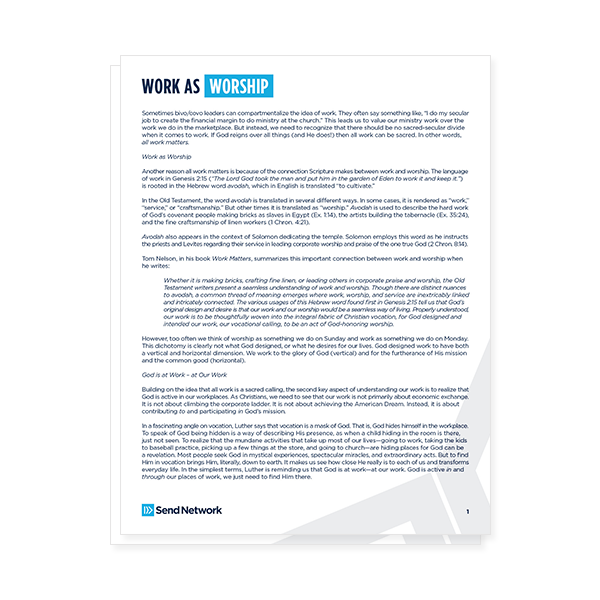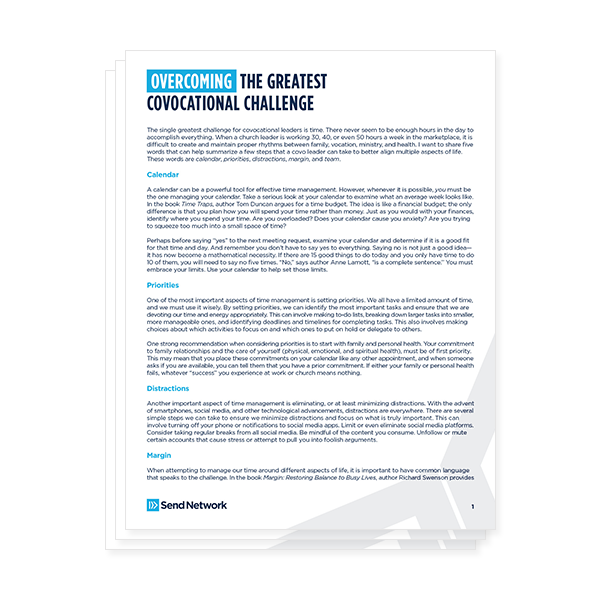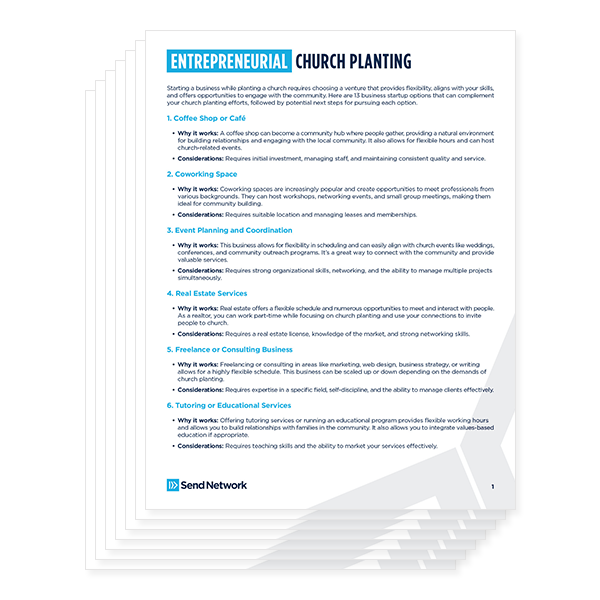When an effective church planter engages a community, he has an internal and compelling urgency directed at the harvest. He is on a mission from God. Soon the harvested become harvesters, and the whole thing takes on a life of its own. For a church planter these are the days that will never be forgotten. But unfortunately, you usually only get to live these days once. Things soon get more complicated because despite your planting methodology, organizational structures and systems must be constructed or everything that has transpired will soon evaporate.
Over time pioneers get replaced or outnumbered by settlers. And then one day it happens. For the first time you are publicly challenged about your preoccupation with this “outward vision.” One boisterous sheep rises up and bleats a counter-vision: “We need to take care of ourselves before we go out trying to save the world!” You look into the eyes of the flock, and you can see a carefully hidden agreement by many. Several of your leaders stand and publicly affirm God’s direction, but you know in your heart that things have now changed. You are officially a church. Your leadership must adapt. For most church planters these are days mourned. A page has forever been turned.
The next phase of leadership involves a moderation of his apostolic voice and a dialing up of his shepherding function. The flock needs a pastor. Often this phase is when the founding church planter leaves. He was either not able to get past his sadness or wasn’t equipped with sufficient pastoral patience and skills. Equally often, this is the phase where the flock chooses a replacement leader who majors on “pastor” and minors on “apostle.” At this point the congregation focuses on internal matters, and what started as a missionary movement settles into becoming a nice, comfortable church.
Before any potential church planters jump off a bridge, let me share some good news. There is one way to gain back what was lost and more. That one way is to turn down the tap of addition and open wide the faucet of multiplication. In the process of multiplication, you have both the opportunity to shepherd (disciple) the flock you steward but also corporately turn the flock outward toward the waiting harvest. By simultaneously caring for the wounded among you and guiding the healed back out toward the wounded, you build a healthy environment that is being equipped for multiplication. The following eight beneficial transferences occur when a church moves out of itself toward the kingdom assignment of multiplication:
1. Fruit bearing
Multiplication helps churches move from a brand-expanding, self-centered incentive for continued ministry to a kingdom-expanding, gospel-centered, harvest focused motivation for ministry. The church becomes truly kingdom-centered, producing fruit that will withstand the day of judgment (see Matt. 25:31–46; John 15:1–11).
2. Diverse cultural and socioeconomic engagement
Multiplication helps churches move from a singular and homogeneous kingdom door to a multilane kingdom entrance designed to effectively engage numerous and diverse cultural and socioeconomic backgrounds. The church becomes porous, able to engage and assimilate numerous people groups.
3. Leadership expansion
Multiplication forces churches to move from an overdependence on an established and staid leadership base to the kingdom multiplication assignment of discovering, developing and deploying new and emerging leaders. The church becomes an ongoing incubator for leadership development, securing a kingdom impact for the generations to follow.
4. Urgency of prayer
Multiplication inspires churches to move from general and detached prayers for the lost to an informed, passionate and desperate prayer life for their harvest. The church becomes personally responsible for the harvest that surrounds them, and the urgency of their prayer life correlates with that responsibility (see Mark 9:38; Luke 10:2).
5. Disciples making disciples
Multiplication requires churches to move from an abstract evangelism training process to an actual, vigorous, “ just in time,” on-the-job evangelism training for disciples caught up in new webs of evangelistic relationships.
6. Everyday missionaries
Multiplication helps churches move from a nonintegrated and distant missionary understanding to an integrated and personal missionary appeal within the congregation. The church itself becomes a missionary agency as it actively calls out new missionaries within its numbers.
7. Hands on missions
Multiplication inspires churches to move from academic, curriculum-based, missions-education programs to a personal, life-transforming, “hands on” experience with missions. The church becomes deliberate with its kingdom assignment and builds church-planting engagement into its discipleship process.
8. God stories
Multiplication necessitates that churches move from an unlived theoretical faith, to a living, breathing, faith-walking journey that is frequently punctuated and propelled by ongoing, miraculous “God stories.”
All church plants, if they survive, become churches. Not all churches become kingdom expanders. By instilling the value for multiplication deep and early within the DNA of a new church plant, God will use your ministry to start a kingdom reaction that will far outlast you and ripple throughout eternity.
Published June 2, 2016




